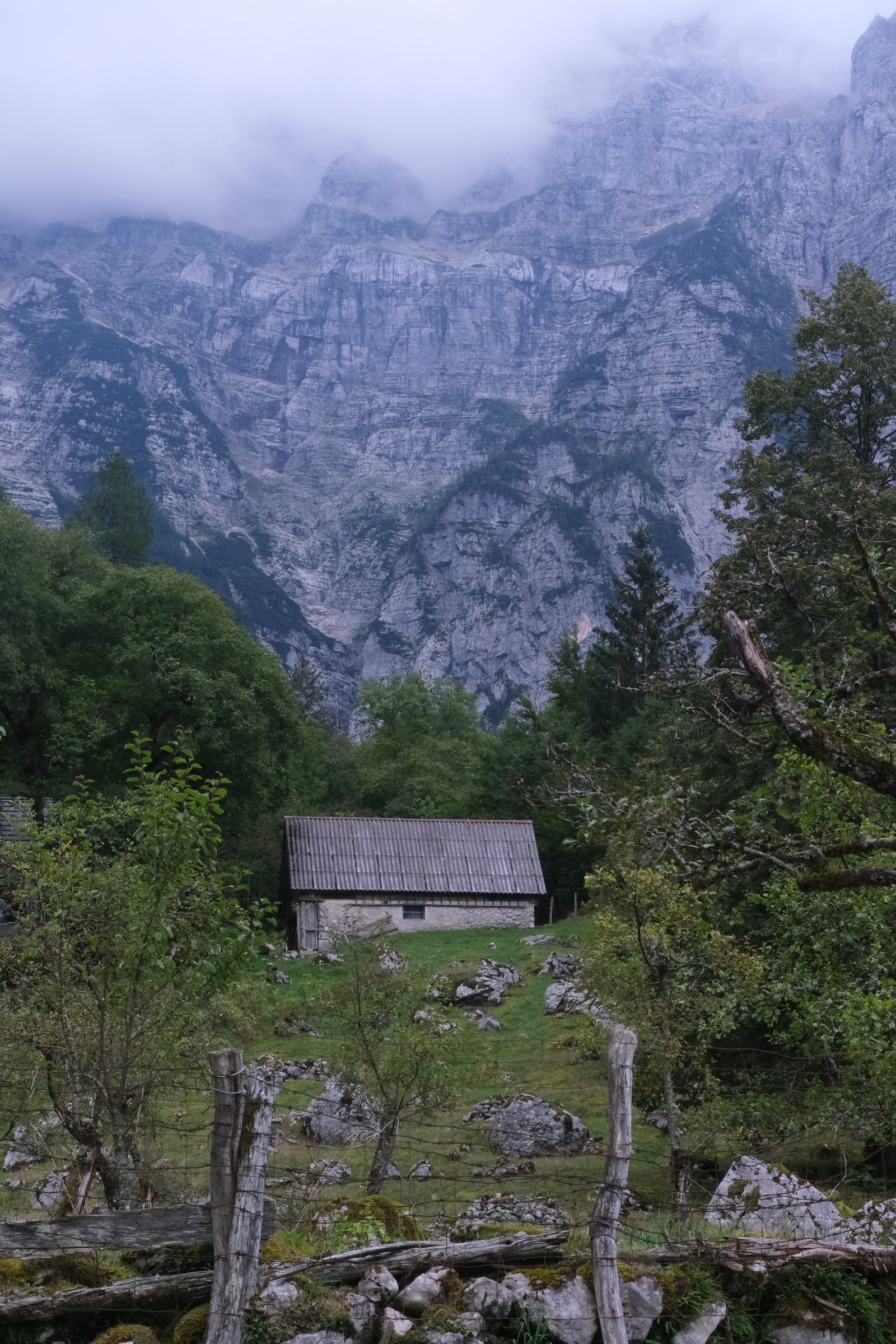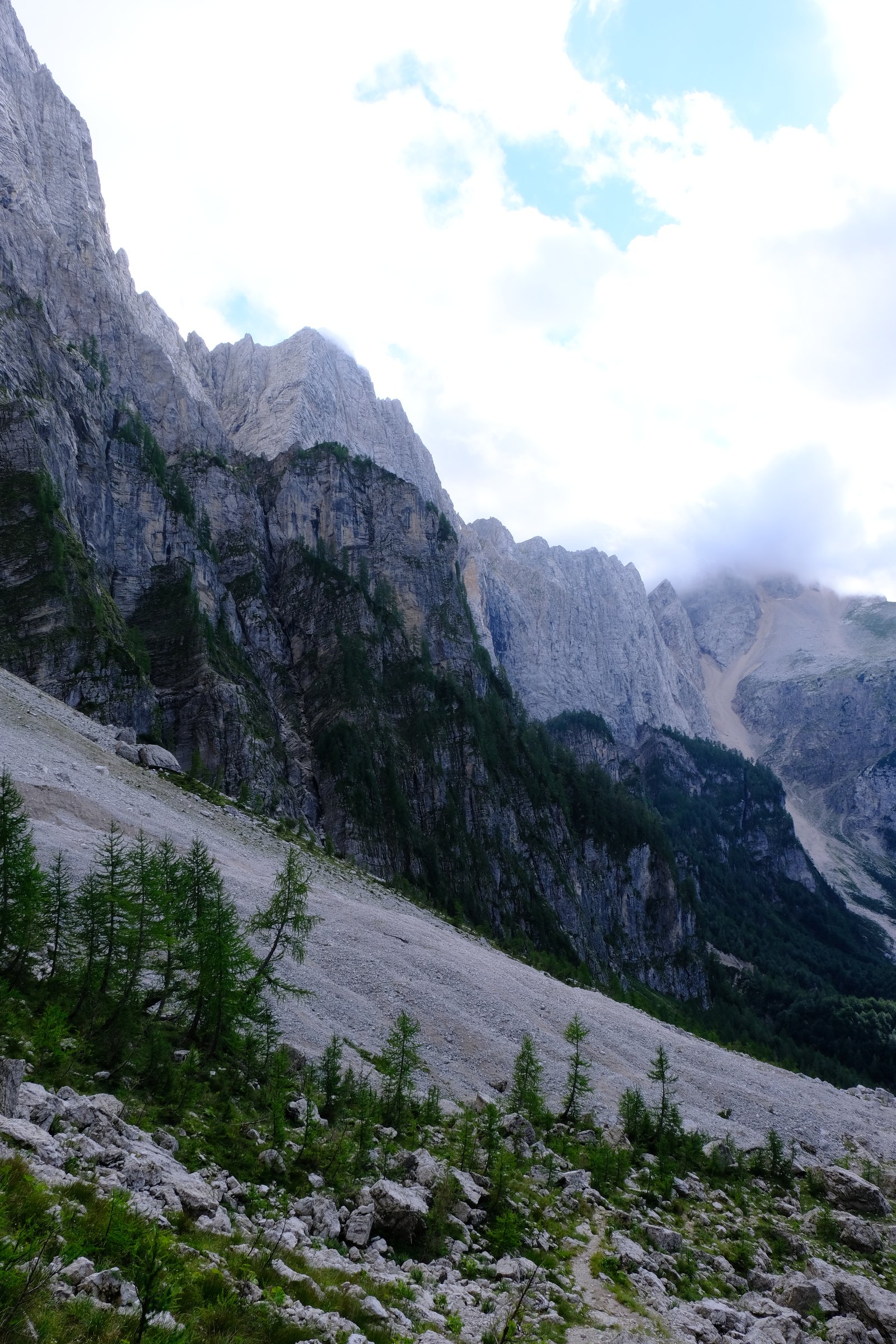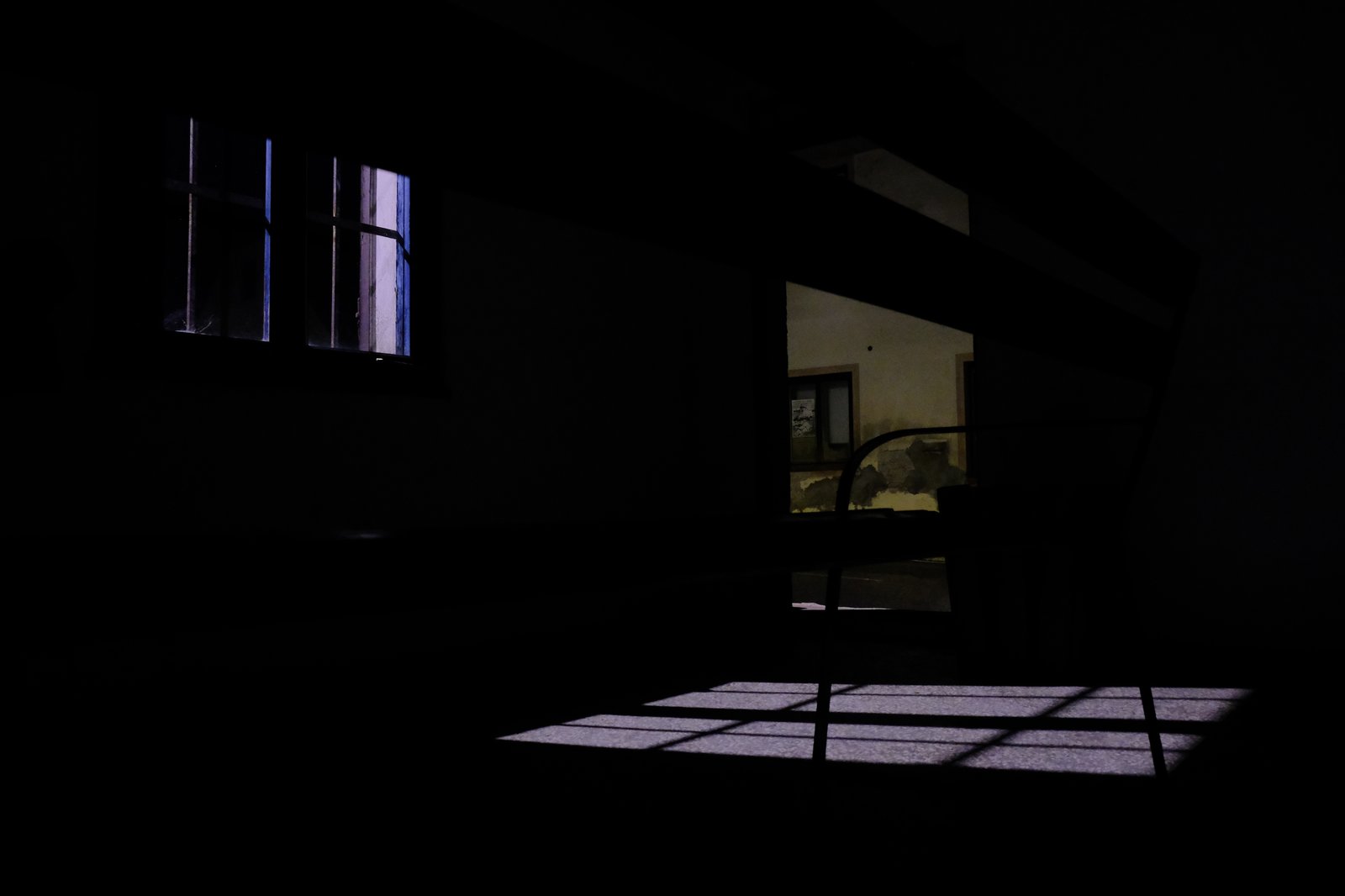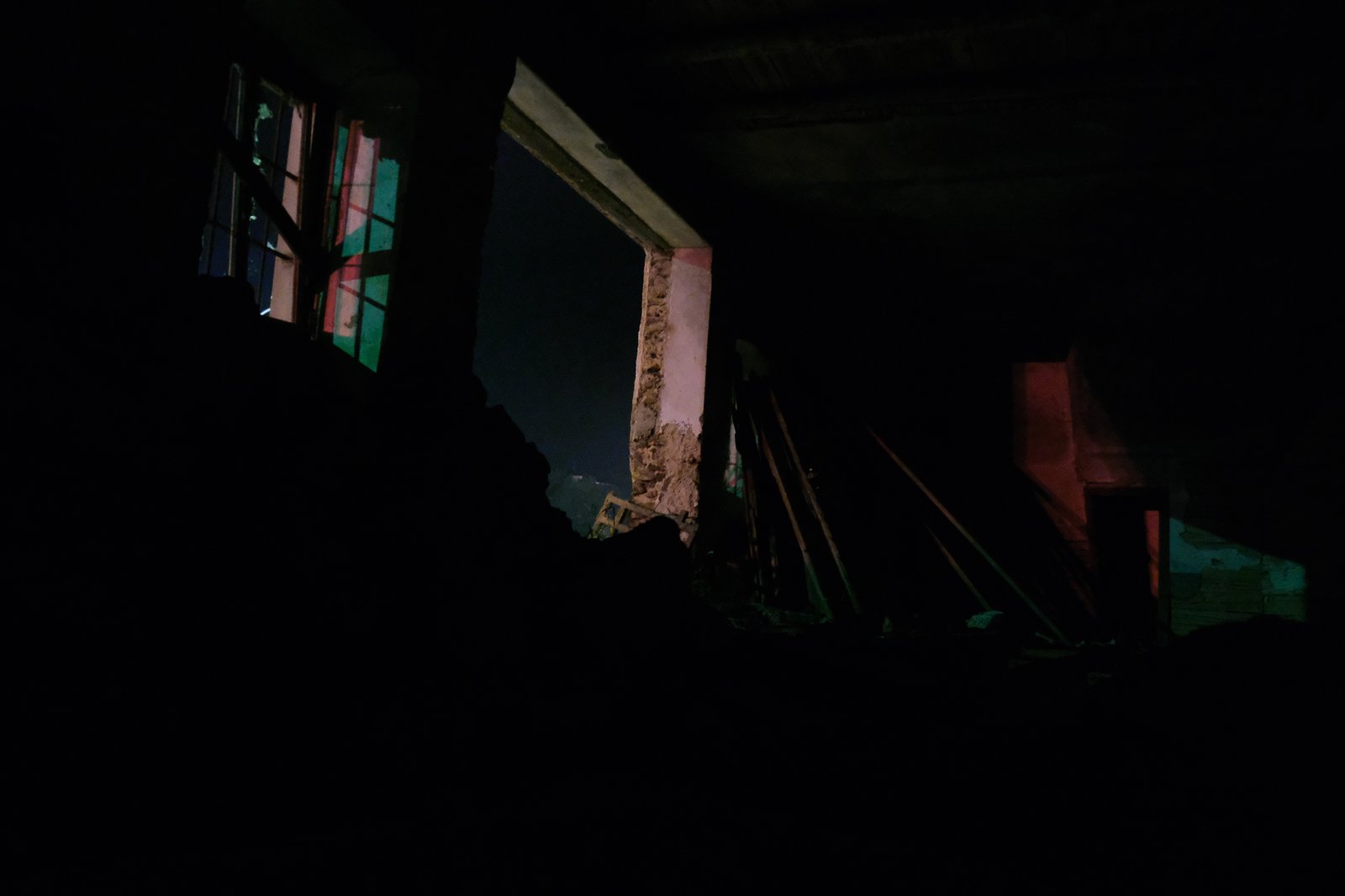Between the mountains and the First Two Pages of Frankenstein


I’ve come ‘off trail’, descended from the shimmying spine of the Alps to spend a couple of days walking the ribbons of shattered rock and black-top, the roads that weave through the valleys instead. Partly because my knees and quads are crying out for a break from 4000+ metres of elevation each and every day, but more so because I wanted to turn my attention fully towards something else.
The time pressure of this visa1, while in many ways a welcome challenge, lays a heavy constraint on how much writing I can do. I want to walk all day and I want to write all day, and I can’t do both, and only the walking satisfies the bureaucratic imposition, so all the sacrifice falls on the writing. In the pages of my journal are a hundred drafts scratched out in the interstitial moments: some almost finished, many barely more than a few lines. I add to them haphazardly, fragments of one interspersed amongst fragments of several others and — without time to sit and rework those fragments — never coalescing into something more solid. “When I get to Bosnia there’ll be time” I tell myself.
Then I consider that Mizuki is joining me in Bosnia, and I can hardly wait, but it might put the kibosh on my hopelessly optimistic fantasy of churning through three months (or perhaps five years) worth of drafts, so I’m carving out an afternoon here, now, in Idrija, western Slovenia.
Speaking of Mizuki, the first thing will be to put her squarely in charge of chocolate rationing; chocolate-related discipline has cratered in recent weeks, I can’t remember the last time I bought a block of chocolate and still had any left at day’s end. I had a cunning strategy last week, I tried buying two blocks. The first disappeared in a flash of foil and cocoa, as expected, but with the second bar buried half way down my pack I was sure to have some for the following day. Hardly. It just made for slightly more of a nuisance an hour and a half later when I stopped to dig it out. Maybe by the time I’m thirty, two blocks of chocolate will be enough to make me feel ill and then I’ll break the habit, maybe.
But I haven’t hung up my boots for the afternoon to write about chocolate, it’s music that’s been loud in both my head and my journal of late. As with the detour into photography in Innsbruck, this one isn’t about walking, or mountains, or the weather; just another wander through my head.
The National released a new album in April while I was back in England for the first time in nearly six years. I listened to it immediately, hoping to find some comfort in Berninger’s voice while I waded through the old familiar dysphoria of ‘home’. But I didn’t find comfort in it, nor even really enjoy it, which was it’s own little trauma. It’s taken several listens for it to really land for me. There are two parts to that: why I couldn’t enjoy it in England; and why it took a while to settle in me. The first part is unwieldy and doesn’t have anything directly to do with the album so forget that, but I’ve been wanting to settle the latter into shape with words, and that seems more manageable. The coming down from the mountains was necessary because I almost never listen to music up there and besides, I haven’t yet figured out a way to shape an attempt (essayer) while in amongst all the beauty of the mountains, the distractions are too great.


Besides, while it can’t match my love for the Alps, I find joy, and a strange and satisfying creative outlet in exploring places I shouldn’t. I can only go so long away from the opportunity to spend the night in the derelict (or less derelict…) buildings that litter towns, cities, and the miles in between, such opportunities don’t arise very often above the tree line.
Above, moonlit and streetlit views from an old bus stop, and a half demolished house respectively. Welcome homes on weary nights.
First Two Pages of Frankenstein, The National
Right from the first listen, even before I could enjoy the album, I thought that Ice Machines was particularly spectacular, a beautiful evolution of that sound that no one else makes. It scared me a little to begin with, not the song itself, but that Matt Berninger sounds so old in it. Like, don’t get old Matt. I remember when I first heard his voice. Like a lot of people, Boxer (2007), their fourth album, was my first introduction to The National, to Berninger’s voice, to that sound. I was ten then, I could only dream about rising (Slow Show) and faltering (Apartment Story) romances and creative tortures (this album).
In that decade where I went nowhere — from ten, through the false start of my teens, right up to and then through the doors of my twenties, everything before I did anything — I probably listened to Boxer more than any other album. Wainwright’s Want One (2003) probably trades blows; Feist’s Metals (2011) might have come close if it had released four years earlier, still definitely top five; if Leonard Cohen had come down from his mountain and released literally anything between Dear Heather (2004) and Old Ideas (2012), things might have been different still — and he might have noticed his manager stealing his life savings a bit earlier too — but he didn’t and so Cohen will forever be Recent Songs (1979) to me, and later maybe You Want It Darker (2016) too.
So Boxer it was. And in the sixteen years I’ve spent listening to that album I have realised those dreams to which it was soundtrack, and the album, like any good album, has grown with me — come to mean yet other things that ten year old me had no concept of. But what about this album, the new one? And how does it sound out of England?
::: =html
<picture>
<source srcset=“/library/misc/first-two-pages-of-frankenstein-cover-art.avif” type=“image/avif” />
<img alt=“Cover art for First Two Pages of Frankenstein. Rights: 4AD” src=“/library/misc/first-two-pages-of-frankenstein-cover-art.jpg” height=“1600” width=“1600”></picture>
:::
- Once Upon a Poolside (featuring Sufjan Stevens)
- Eucalyptus
- New Order T-Shirt
- This Isn’t Helping (featuring Phoebe Bridgers)
- Tropic Morning News
- Alien
- The Alcott (featuring Taylor Swift)
- Grease in Your Hair
- Ice Machines
- Your Mind Is Not Your Friend (featuring Bridgers)
- Send for Me
When I saw the features on the album I flinched a little. I love Sufjan Stevens and Phoebe Bridgers both, but I couldn’t see full features working there. I was wrong of course — their support is light, but felt, and both tracks are the better for it — but I was also kind of right: Sufjan gets a ‘feature’ on Once Upon A Poolside because you do at least hear his voice, but he’s barely there. He got no feature credit on Ada (Boxer) for his piano play, even though I would say that was a larger collaboration than on this album. Phoebe’s feature on This Isn’t Helping is similarly ‘just’ a backing vocal. So when I saw the features I feared a bigger presence than I could see fitting, and thankfully that didn’t materialise, and instead we got two miraculously well balanced tracks, with two equally good tracks in between (Eucalyptus and New Order T-Shirt. The first four tracks sing (harhar) together and I’m left wondering what on earth was clogging up my head four months ago that meant I couldn’t feel it.
Tropic Morning News lands with more of a thump after This Isn’t Helping‘s softness. Lyrically it is familiar, a lament, but it’s sound is put into relief by being comparatively more sure of itself, less (instrumental) room for doubt. If TMN is a departure, Alien is straight back to form: the pain of being other, Berninger roiling, vignettes of a breakdown, setting up for Your Mind Is Not Your Friend later on, but first…
The elephant Alcott in the room album
I was probably most dubious of The Alcott (feat. Taylor Swift) but, again, it worked… sort of. It is, for sure, a very studio track. For a band that records as much at home as in the studio, The Alcott feels like something else entirely, so clean, maybe too clean. Musically there is no doubt, it is the bonafide National sound, and it’s lyrically excellent too. The conversational style is surprisingly beautiful, it’s not trite like other examples in the format (Nelly Furtado’s Promiscuous comes to mind). But if there’s a song that doesn’t belong on the album, it’s this one. It’s a great song, Swift’s alto is a perfect match to Berninger’s baritone. Taken apart, it’s a refinement, an evolution of what Swift and Berninger created with Coney Island for her album evermore (2020), a richer and more expansive take on that conversational style. I could play it on a loop for an hour and keep coming back to it, but it doesn’t belong to Frankenstein. Honestly it should have been on a Swift album, or released as a single, or as part of a separate collaboration, I think the pair could make a whole EP in this style and it would be fantastic, but it wouldn’t be Frankenstein. It plants itself in the album like an awkward, overt quid-pro-quo for what The National brought to Coney Island.

And The Alcott only makes what follows, Grease In Your Hair, all the more jarring. Where Bryan Devendorf’s drumming is almost universally sublime, in Grease it feels chaotic, which suits the lyrics of the track but then turns it into another track that seems out of place on the album. Maybe it would settle if I tried listening to the album through, but with The Alcott removed, but by this point Frankenstein definitely feels like two albums to me.
Or probably it’s fairer to say that it feels like a near perfect volume two to an album that I’ve loved for nearly two thirds of my life, marred only by the quid-pro-quo + “some kind of cosmic rearrangement” (Grease In Your Hair) for a while, which I don’t love, and then it comes roaring back… quietly. It’s still a hopeless album which, to be clear, is a good thing; there’s no question, I would listen to anything they released, but the world in which The National puts out a soaringly upbeat album would be far, far stranger than the one where they put The Alcott on what is otherwise probably their best album ever, better even than my beloved Boxer. It’s likely though that my connecting these two albums has as much to do with my desire to do so as it does with any actual facts. But at the very least, compared to Sleep Well Beast (2017), this is a far more gentle album, consciously less sure of itself, more vulnerable again2.
In fact, the last three tracks on the album — Ice Machines, Your Mind Is Not Your Friend (feat. Phoebe Bridgers), and Send For Me — have quickly become some of my favourites ever. To me they feel like sequels to my favourite tracks of Boxer, closer to those tones. Ice Machines makes Eucalyptus sound even better, and it echoes the big littleness, the life of a mind alone in a big city of Fake Empire (Boxer), goes toe-to-toe with that magnificent track. Your Mind Is Not Your Friend feels like Ada or Apartment Story (Boxer) plus sixteen years of growth, triumph, and doubt.
These last three tracks mean the most to me and yet I’ll say the least about them, because the library is about to close and I don’t have time left to do them justice and I really want to emit this fragment so I can move onto another one when next I am able to carve out a block of solid, solidifying time.
Looking ahead, there are roughly 180 kilometres and 10,000 vertical metres left in Slovenia, then a 230 kilometre dash across Croatia with similar vertical, and then the chocolate disciplinarian arrives.
Two legs bad good, four legs better.
g’night x